|
Books Should Be Free Loyal Books Free Public Domain Audiobooks & eBook Downloads |
|
|
Books Should Be Free Loyal Books Free Public Domain Audiobooks & eBook Downloads |
|
Romance Novels |
|---|
|
Book type:
Sort by:
View by:
|
By: Fanny Burney (1752-1840) | |
|---|---|
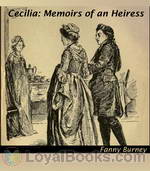 Cecilia: Memoirs of an Heiress
Cecilia: Memoirs of an Heiress
The plot of Cecilia revolves around the heroine, Cecilia Beverley, whose inheritance from her uncle comes with the stipulation that she find a husband who will accept her name. This proves impossible, and she gives up her fortune to marry for love. Jane Austen referred to Cecilia and other novels in her novel, Northanger Abbey: “’And what are you reading, Miss — ?’ ‘Oh! It is only a novel!’ replies the young lady, while she lays down her book with affected indifference, or momentary shame... | |
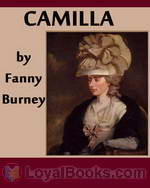 Camilla
Camilla
Camilla is Frances Burney's third novel. It became very popular upon its publication in 1796. Jane Austen referred to it, among other novels, in her novel Northanger Abbey:"'And what are you reading, Miss — ?' 'Oh! It is only a novel!' replies the young lady, while she lays down her book with affected indifference, or momentary shame. 'It is only Cecilia, or Camilla, or Belinda'; or, in short, only some work in which the greatest powers of the mind are displayed, in which the most thorough knowledge of human nature, the happiest delineation of its varieties, the liveliest effusions of wit and humour, are conveyed to the world in the best–chosen language... | |
By: Fergus Hume (1859-1932) | |
|---|---|
 Amethyst Cross
Amethyst Cross
Things look bleak for Lesbia Hales. Her father does not let her marry the man she loves. Her mother is dead. She has to keep secrets in order to promote what she wants for herself. One day, her lover, George Walker, is injured in her home and someone stole the expensive amethyst cross. Who could have done that and why? - Summary by Stav Nisser. | |
By: Florence A. (Florence Antoinette) Kilpatrick (1888-) | |
|---|---|
 Our Elizabeth A Humour Novel
Our Elizabeth A Humour Novel
| |
By: Florence Alice Sitwell (1858-1930) | |
|---|---|
 Daybreak A Story for Girls
Daybreak A Story for Girls
| |
By: Florence Irwin (1869-19??) | |
|---|---|
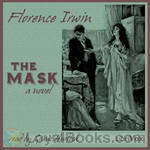 The Mask
The Mask
The mask is the one which we all wear, even though unconsciously, to hide our thoughts and feelings. Alison Terry wore one, though she had never realized it until she faced a crisis in her life. Alison, a girl of sympathetic mood and action whose keen intelligence is overbalanced by the inexperience of innocence and a sheltered upbringing, goes to New York with her erratic husband, Phil Howland. She passes through various stages of disillusionment inevitably resulting from cheap boarding-house life,... | |
By: Florence Louisa Barclay (1862-1921) | |
|---|---|
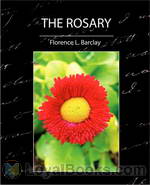 The Rosary
The Rosary
He is a wealthy gifted and handsome young pianist who worships beauty. She is a woman blessed with a divine voice, but a less than beautiful appearance. He proposes, but she cannot believe that his love will last. A tragic accident results in his losing his eyesight. She hears about the accident and takes up employment as his nurse without revealing her identity. This forgotten, 1910 best-seller still holds the power to charm and delight the modern-day reader. One of the most poignant love stories ever written, The Rosary by Florence Louisa Barclay takes its title from the name of a song that was a chart-buster in the early twentieth-century... | |
By: Florence Morse Kingsley (1859-1937) | |
|---|---|
 And So They Were Married
And So They Were Married
This is the story of Elizabeth North a young woman who becomes engaged and with the aid of a social climbing friend begins to plan her wedding beyond what she can afford. Her friend Evelyn Tripp, convinces Elizabeth that she “simply can’t afford” not to live a fashionable and expensive lifestyle. However her husband and her grandma help her to see sense and pull herself out of the debt she has got herself into. | |
 Princess and the Ploughman
Princess and the Ploughman
On the surface, Mary is the typical literary heroine: Beautiful, animated, and accomplished. She will be rich, too, when she inherits her aunt's large fortune. There is only one problem: Mary is required to marry before her twenty-third birthday or her inheritance will be forfeited... and she is already violently in love with her girlfriend, Felice. | |
By: Florence Roma Muir Wilson (1891-1930) | |
|---|---|
 Death of Society: A Novel of Tomorrow
Death of Society: A Novel of Tomorrow
A weary survivor of the Great War, Major Rane Smith wanders in a great ennui amidst the mystical beauties of the fjords of Norway after the War, seeking a spiritual renewal. Deep in the forest he stumbles fatefully upon the strange, almost elvish home of Karl Ingman, an iconoclastic old Ibsen scholar. There Major Smith meets Ingman's two beautiful young daughters and his eldritch wife Rosa, entering into long days of profound dialogue with each member of the family. A rare and exquisite gem of... | |
By: Frances Aymar Mathews | |
|---|---|
 Christmas Honeymoon
Christmas Honeymoon
Newlyweds Betty Revere and Peter Van Zandt are completely smitten with each other. Their wedding is said to have been one of the most beautiful ever seen in New York. A conflict between the couple causes a series of events to take place which isn’t rectified till years later by a special little boy looking for Christmas happiness. - Summary by Jenn Broda | |
By: Frances Brooke | |
|---|---|
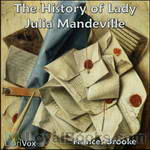 The History of Lady Julia Mandeville
The History of Lady Julia Mandeville
Lady Julia, the daughter of the Earl of Belmont, and Mr. Henry Mandeville are falling in love. Though Henry is like a family friend, this love is not welcomed because the Lady Julia is promised to someone else (or so Henry thinks). When they discover that they can be together after all, it is much too late. This novel, written in the form of letters, as are a lot of 18th century novels, shows their beautiful and echoing love story through the eyes of many people. | |
By: Frances Burney (1752-1840) | |
|---|---|
 The Wanderer
The Wanderer
This is the fourth and final novel by Fanny Burney, the author of Evelina, Cecilia, and Camilla. "Who is "Miss Ellis?" Why did she board a ship from France to England at the beginning of the French revolution? Anyway, the loss of her purse made this strange "wanderer" dependent upon the charity of some good people and, of course, bad ones. But she always comforts herself by reminding herself that it's better than "what might have been..." This is not only a mystery, not at all. It's also a romance which reminds readers of novels by Jane Austen... | |
By: Frances E. W. Harper (1825-1911) | |
|---|---|
 Sowing and Reaping
Sowing and Reaping
This novel is subtitled A Temperance Story, which identifies explicitly the focus of the work. Frances Harper is a Christian moralist and uses her writings for didactic purposes. Here she contrast two couples, one, Belle and Paul, who do not drink and whose lives are happier and more productive, and the other, Jeanette and Charles, who lives are destroyed by the demon rum. | |
By: Frances Hodgson Burnett | |
|---|---|
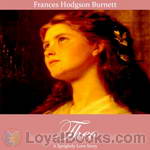 Theo
Theo
It's described as "A SPRIGHTLY LOVE STORY" and it is written by F. H. Burnett, "one of the most charming among American writers!" | |
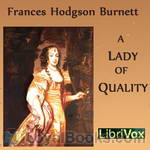 A Lady of Quality
A Lady of Quality
Set in late 1600's England, the story follows the life of a woman living an unconventional life. The loves of her life and all of its ups and downs are included. | |
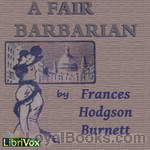 A Fair Barbarian
A Fair Barbarian
The setting is a small English village in the 19th century. When her niece shows up on her doorstep unexpectedly, a quiet spinster finds her life turned upside down. | |
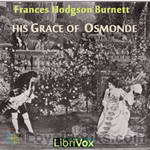 His Grace of Osmonde
His Grace of Osmonde
His Grace of Osmonde, being the portions of that nobleman's life omitted in the relation of his Lady's story presented to the world of fashion under the title of 'A Lady of Quality'Set in late 1600's England, the story follows the life of a woman living an unconventional life. The loves of her life and all of its ups and downs are included. And as above, has more of the story of the Duke who becomes the love of her life. | |
 Vagabondia 1884
Vagabondia 1884
| |
 That Lass O' Lowrie's 1877
That Lass O' Lowrie's 1877
Frances Hodgson Burnett was born and grew up in Manchester, England, and emigrated to the United States with her family at the age of 16. For her first novels, written in Knoxville, Tennessee and published in New York, she drew upon her knowledge of life and speech of the Lancashire working classes. Set in a Lancashire mining town, That Lass o' Lowries is a gritty, and at times brutal, tale of romance across the classes, which stands in stark contrast to her later work. | |
 "Le Monsieur de la Petite Dame"
"Le Monsieur de la Petite Dame"
| |
 One Day At Arle
One Day At Arle
| |
 Miss Crespigny
Miss Crespigny
This is a less known, but not less beautiful, novel by the author of The Secret Garden, A Little Princess, The Lost Prince, Little Lord Fauntleroy, The Shuttle, and many more. There is something different about miss Lysbeth Crespigny. Raised by three maiden aunts and sheltered from the world, she leaves them for the first time in order to explore the world. Yet she is often misunderstood. The world she discovers is more complicated and confusing then she anticipates. She is only 18 when the book starts. However the choices she has to make have consequences which she learns to navigate and become the strong woman she can be. - Summary by Stav Nisser. | |
By: Frances Milton Trollope (1779-1863) | |
|---|---|
 Vicar of Wrexhill
Vicar of Wrexhill
A villainous vicar insinuates himself into the life of a wealthy but foolish widow, ruining the fortunes and happiness of her three children, until they begin to fight back. Published in 1837 by the mother of the better-known Anthony Trollope, this highly readable romance portrays the evangelical movement of the Anglican church in a shocking light that may remind readers of some of the religious abuses of the present day. | |
By: Frances Sheridan | |
|---|---|
 Memoirs of Miss Sidney Bidulph
Memoirs of Miss Sidney Bidulph
Sidney and Cecilia are best childhood friends who are forced to part for 5 years. In that interval, Sidney Bidulph - an undoubtedly good and dutiful woman - writes to her friend about everything: her marriage, her children, her other friendships and, above all, about her great love for Mr. Faulkland. In an amazing and unforgettable way, this book shows us that the road to happiness is not always clear - and that sometimes doing what seems to be right is not really the right thing to do. With Rachel's lovely reading, we see her - Sidney Bidulph - as she was meant to be, and as she really is. | |
By: Francis Brett Young (1884-1954) | |
|---|---|
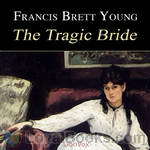 The Tragic Bride
The Tragic Bride
The story centers on Gabrielle Hewish, only and lonely child of Sir Jocelyn Hewish, a loveable lush and owner of the peaceful Roscarna estate nestled in the Irish countryside. In due course, young Gabrielle falls in love with a Navy man whose untimely demise sends her into a depression, and the consequences of which alter her future, culminating in a fascinating and quite unpredictable relationship with Mrs. Payne and her troubled son Arthur. A story of understanding in it’s finest sense and aptly titled, The Tragic Bride is both interesting as a story and telling as a character study. | |
By: Francis Hopkinson Smith (1838-1915) | |
|---|---|
 Little Gray Lady
Little Gray Lady
As every Christmas for the last 20 years, the Little Gray Lady lights a candle in her room and spends the evening alone, thinking of a great mistake she has made so long ago. This year, however, things are to play out differently.. | |
By: Francis William Bourdillon (1844-1912) | |
|---|---|
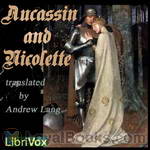 Aucassin and Nicolette.
Aucassin and Nicolette.
Aucassin and Nicolette is a medieval romance written in a combination of prose and verse called a “song-story.” Created probably in the early 13th century by an unknown French author, the work deals with the love between the son of a count and a Saracen slave girl who has been converted to Christianity and adopted by a viscount. Since Aucassin’s father is strongly opposed to their marriage, the two lovers must endure imprisonment, flight, separation in foreign lands, and many other ordeals before their ardent love and fierce determination finally bring them back together... | |
By: Frederick James Furnivall (1825-1910) | |
|---|---|
 Arthur A Short Sketch of His Life and History in English Verse of the First Half of the Fifteenth Century
Arthur A Short Sketch of His Life and History in English Verse of the First Half of the Fifteenth Century
| |
By: Friedrich de La Motte-Fouqué (1777-1843) | |
|---|---|
 Undine
Undine
Undine is a novel by Friedrich de la Motte Fouqué concerning Undine, a water spirit who marries a Knight named Huldebrand in order to gain a soul. It is an early German romance, which has been translated into English and other languages. The novel served as inspiration for two operas in the romantic style by Ernst Theodor Amadeus Hoffmann and Albert Lortzing, respectively, and two ballets: the nineteenth century Ondine and the twentieth century Undine. An edition of the book was illustrated by Arthur Rackham... | |
By: Friedrich Schiller (1759-1805) | |
|---|---|
 Love and Intrigue
Love and Intrigue
Ferdinand is an army major and son of President von Walter, a high-ranking noble in a German duke's court, while Luise Miller is the daughter of a middle-class musician. The couple fall in love with each other, but both their fathers tell them to end their affair. The President instead wants to expand his own influence by marrying Ferdinand to Lady Milford, the duke's mistress, but Ferdinand rebels against his father's plan and tries to persuade Luise to elope with him. | |
By: Fyodor Dostoyevsky (1821-1881) | |
|---|---|
 Landlady
Landlady
Everything changed when Ordynov, a secluded young thinker, stepped out of his old lodgings in search of another corner. The ailing landlord watched from a distance, while the beautiful landlady came close... A tale of love, murder, and sorcery, The Landlady is one of a kind among Fyodor Dostoevsky's works. Written at the age of 26 before he was sent to Siberia, preceded only by The Double and Poor Folk, this novella draws inspiration from Russian folklore as well as stories by Pushkin and Gogol. It anticipates some of the writer's most important ideas to be developed in his later writings. | |
By: Gene Stratton-Porter (1863-1924) | |
|---|---|
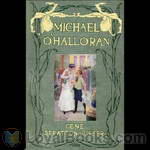 Michael O'Halloran
Michael O'Halloran
The story of a plucky, optimistic newsboy, Michael O’Halloran, who has been orphaned from a young age and asks nothing of the world but to “Be Square!” This is a warm and joyous story of how Michael makes life sunnier for those around him, bringing joy to all who know him. | |
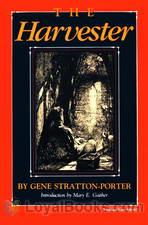 The Harvester
The Harvester
The Harvester is one of Gene Stratton-Porter’s romantic novels which combine a love of nature, high moral ideals and a good plot. This is the story of a young man who lives in the country side with his dog and other animals and grows herbs to sell to medical drug supply houses. One evening, he has a vision of his Dream Girl and this is the story of his search for her and what happens when he finds her. | |
 A Daughter of the Land
A Daughter of the Land
Independent Kate Bates resents the fact that, as the youngest of a large family, she is expected to stay at home and help her parents while her brothers and sisters are free to pursue their desires. When she defies her family and leaves home, she finds that the path to independence is paved with hardships. | |
 Keeper of the Bees
Keeper of the Bees
Threatened with isolation in a sanitorium for tuberculosis, a young soldier escapes and finds himself healing in a paradisal bee-garden by the ocean, tending bees which he knows nothing about, and other unlikely charges who in their circuitous ways, challenge him to discover love. | |
By: George Barr McCutcheon | |
|---|---|
 Graustark
Graustark
The Graustark novels are stories of court intrigue, royal disguise, and romance similar to Anthony Hope’s 1894 novel, The Prisoner of Zenda, and its sequels. They were popular best-sellers at the time they were published and the original editions are still readily available in used book shops. The novels gave their name to a fictional genre called Graustarkian: this genre contains tales of romance and intrigue usually featuring titled characters in small, fictional, Central European countries... | |
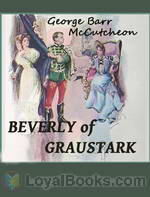 Beverly Of Graustark
Beverly Of Graustark
Beverly Of Graustark is the second book in the Graustark series. Lorry and his wife, the princess, made their home in Washington, but spent a few months of each year in Edelweiss. During the periods spent in Washington and in travel, her affairs in Graustark were in the hands of a capable, austere old diplomat–her uncle, Count Caspar Halfont. Princess Volga reigned as regent over the principality of Axphain. To the south lay the principality of Dawsbergen, ruled by young Prince Dantan, whose half brother, the deposed Prince Gabriel, had been for two years a prisoner in Graustark, the convicted assassin of Prince Lorenz, of Axphain, one time suitor for the hand of Yetive... | |
 From the Housetops
From the Housetops
| |
By: George Bernard Shaw (1856-1950) | |
|---|---|
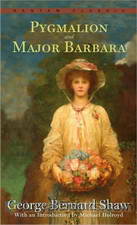 Pygmalion
Pygmalion
If you've watched and loved the delightful musical My Fair Lady, then you'd love to read the wonderful play on which it is based. Pygmalion by George Bernard Shaw is equally engrossing and as full of charm, wit and underlying pathos. First performed on stage in 1912, Pygmalion takes its title from the Greek myth of Pygmalion and Galatea. In the ancient story, a brilliant sculptor, Pygmalion falls in love with one of his own creations, a ravishingly beautiful sculpture whom he names Galatea. He propitiates Aphrodite, who grants his wish that his statue would come to life and that he could marry her... | |
 Widowers' Houses
Widowers' Houses
This is one of three plays Shaw published as Plays Unpleasant in 1898; they were termed "unpleasant" because they were intended, not to entertain their audiences—as traditional Victorian theatre was expected to—but to raise awareness of social problems and to censure exploitation of the laboring class by the unproductive rich. In this play, Dr. Harry Trench becomes disillusioned when he discovers how his fiancee's father, Mr. Sartorius, makes his money. However, it is soon revealed that Trench's own income is far from untainted. | |
 Love Among the Artists
Love Among the Artists
Love Among the Artists was published in the United States in 1900 and in England in 1914, but it was written in 1881. In the ambience of chit-chat and frivolity among members of Victorian polite society a youthful Shaw describes his views on the arts, romantic love and the practicalities of matrimony. Dilettantes, he thinks, can love and settle down to marriage, but artists with real genius are too consumed by their work to fit that pattern. The dominant figure in the novel is Owen Jack, a musical genius, somewhat mad and quite bereft of social graces... | |
By: George de Horne Vaizey (1857-1917) | |
|---|---|
 A College Girl
A College Girl
| |
 The Independence of Claire
The Independence of Claire
| |
 The Heart of Una Sackville
The Heart of Una Sackville
| |
 More About Peggy
More About Peggy
| |
 Big Game A Story for Girls
Big Game A Story for Girls
| |
 The Fortunes of the Farrells
The Fortunes of the Farrells
| |
By: George Eggleston and Dolores Marbourg | |
|---|---|
 Juggernaut: A Veiled Record
Juggernaut: A Veiled Record
Edgar Braine was consistently successful at all he set out to accomplish. He went through life with goals and worked diligently and with ethical purity in reaching those goals, from becoming editor of the local newspaper on up to his political aspirations. That was how his mother, in her waning years, had advised him to reach his goals, and Edgar was determined to honor her advice. There was one caveat in his mothers advice however, and it is for Edgar to determine exactly what she meant by it. Is success measured by the interactions between business, politics, and marriage? | |
By: George Eliot (1819-1880) | |
|---|---|
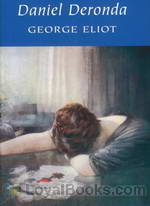 Daniel Deronda
Daniel Deronda
A lovely young woman gambling at a casino in Leubronn, Germany. A young man watches, fascinated from afar. She begins to lose heavily and leaves the casino. Thus opens the last and probably the most controversial of George Eliot's novels. Published in 1876, Daniel Deronda is also the only one in which the great Victorian novelist portrays contemporary society of her own time. There were only a few murmurs when it first came out, but later, they became a full fledged outpouring of resentment against what many readers felt was an extremely controversial stand on Jewish, proto-Zionist and Kabbalistic ideas... | |
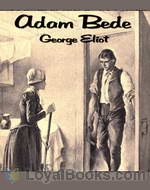 Adam Bede
Adam Bede
A young carpenter falls in love with the village beauty. She, however, has set her sights on a dashing army captain who's the son of the wealthy local squire. Meanwhile, a beautiful and virtuous young woman preacher arrives in the village. What happens to these people and the strange twists and turns that their lives take are described in the rest of the book. Adam Bede was George Eliot's first published novel. Published in 1859, the book has remained a firm favorite with readers and academicians alike and is still taught in many English literature courses all over the world... | |
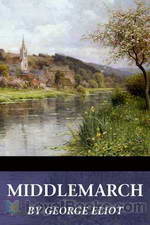 Middlemarch
Middlemarch
George Eliot's seventh and perhaps most famous novel almost didn't get written! It took birth as a short novella titled Miss Brooke but she was unhappy with its progress and finally in despair, she decided to put it aside for a couple of years. Meanwhile, personal problems intervened and when she took up the project again, it was with a renewed sense of creativity. Middlemarch: A Study of Provincial Life first appeared as an eight-part serial novel in 1871-72. In 1874, it was finally compiled into a full length novel and attained instant fame and success... | |
 Felix Holt, The Radical
Felix Holt, The Radical
"Harold Transome is a landowner who goes against his family's political tradition (much to his mother's distress), while Felix Holt is a sincere radical. The setting of the book, the 1832 parliament election, is used to discuss the social problems of that time. A secondary plot involves Esther Lyon, the stepdaughter of a minister who is the real heiress to the Transome estate, with whom both Harold Transome and Felix Holt fall in love. Esther loves poor Felix Holt, but would she choose a comfortable life with Harold Transome?" | |
By: George Gascoigne (1535-1577) | |
|---|---|
 Adventures of Master F.J.
Adventures of Master F.J.
This story presents through letters, poems and third-person commentary the love affair between a young man named Freeman Jones and a married woman named Elinor, lady of the castle he is visiting in Scotland. Events in the affair are traced from initial attraction through seduction to (somewhat) graphic sexual encounters and their aftermath. (Allegedly based on a real-life scandal, the author, in re-issuing his story two years later, transplanted the action to Italy, renaming the principals Fernando Jeronimi and Leonora.) | |
By: George Gibbs (1870-1942) | |
|---|---|
 Maker of Opportunities
Maker of Opportunities
When you're tired only because you're bored; and you're bored only because it seems like there's really nothing worth doing; and you're so, so wealthy that one would think opportunity should be knocking at your door every day... you sometimes just have to tell your closer friends how fatiguing the life of he who has everything really is.... And then; you find your calling! | |
 Golden Bough
Golden Bough
The eyes of the Légionnaire, now grown accustomed to the glow of the light, made sure that the figure had not moved, nor was aware of his silent and furtive approach. Two plans of action suggested themselves, one to move behind the foliage to the right and intercept the monk with the lantern should he attempt to flee toward the lights of the house nearby, the other to risk all in a frank statement, a plea for charity and asylum. (A selection from Chapter 1. ) | |
 Yellow Dove
Yellow Dove
A World War 1 spy vs spy novel. Oh! And perhaps I should also mention, a bit of romance? "I am sorry,” he said coolly, "awfully sorry. As you know, I would have had things different. You may still doubt me when I say that what I have done is the hardest task that I ever undertook in my life. But that is true. You were the only person in England who jeopardized my existence there. I had to take you away. I regret the necessity of having to use force. I shall do what I can here upon the Sylph to counteract the unpleasant impression of my brutality... | |
 Love of Monsieur
Love of Monsieur
A charming rogue, a stolen birthright, unrequited love, mutiny on the high seas, with a backdrop of 17th century England and the Spanish Main, make for another historical romance from George Gibbs. - Summary by Donald Cummings | |
 Silent Battle
Silent Battle
This offering from George Gibbs, follows the developing romance between lawyer Tom Gallatin, trying to beat his alcoholism, and debutante Jane Loring. It begins with Tom getting lost while on a hunting trip in the Canadian wilderness, where he has gone in hopes of rehabilitating himself. Attempting to find his way back, he encounters Jane Loring, also lost. Each is attracted to the other, but after a few nips from Jane's flask, Tom steps over the line with her. The seriousness of his actions, as well as his feelings toward Jane, leads him to overcome his addiction... | |